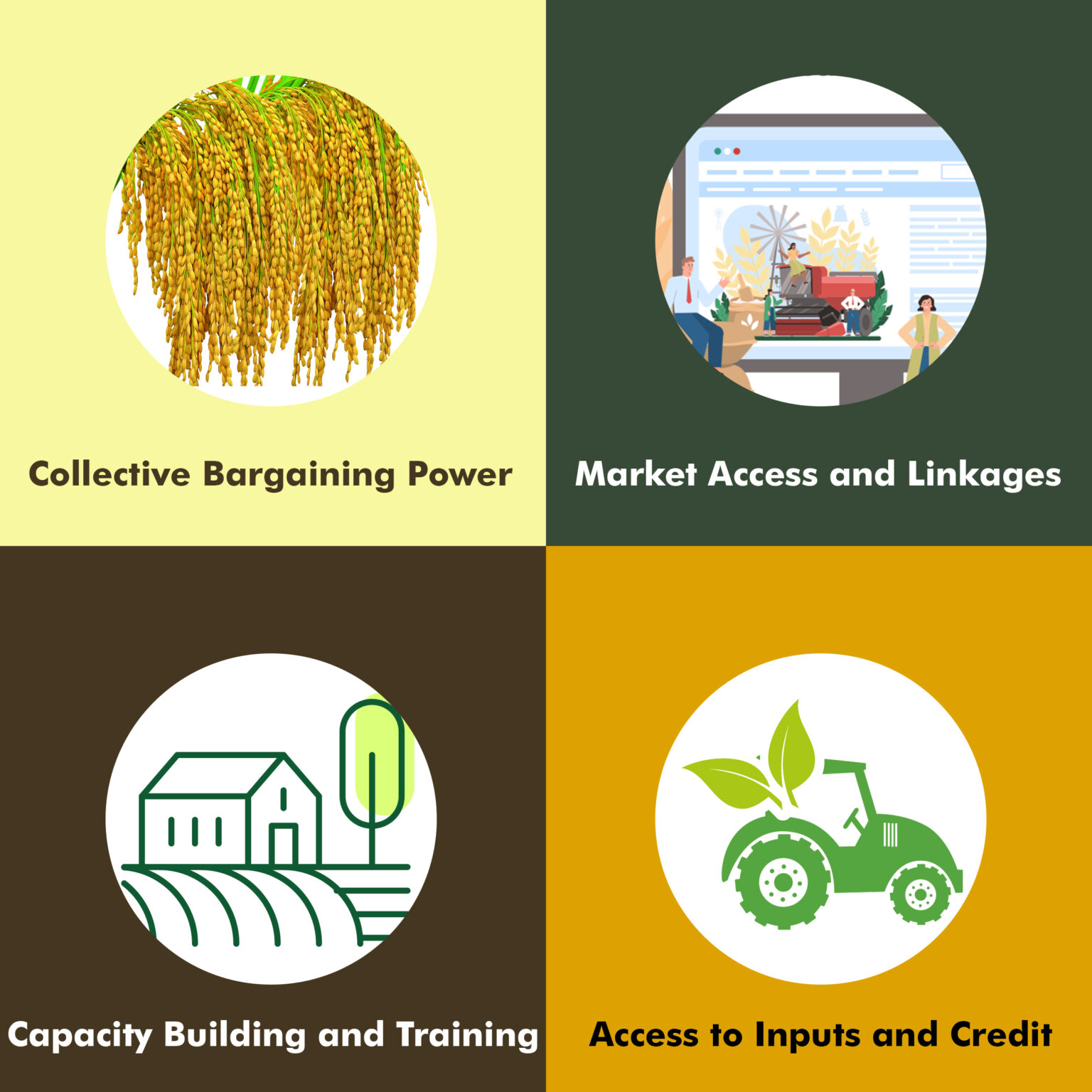In the dynamic landscape of agriculture, where challenges like market volatility, inadequate infrastructure, and limited access to resources persist, the emergence of Farmer Producer Organizations (FPOs) has been a hope for farmers worldwide. FPOs represent a collective effort by farmers to enhance their bargaining power, access better markets, and improve their overall socio-economic status. However, the success of FPOs is intricately linked with a robust regulatory framework that supports and nurtures their growth.

Understanding FPOs
Farmer Producer Organizations, often referred to as FPOs, are collective entities formed by farmers to collectively undertake activities such as production, harvesting, processing, marketing, and selling of their produce. These organizations operate on the principle of cooperative action, where farmers pool their resources, knowledge, and skills to achieve common goals.
The benefits of FPOs are multifaceted
Enhanced Bargaining Power: By consolidating their produce, farmers gain greater leverage in negotiations with buyers, ensuring fair prices for their goods.
Access to Markets: FPOs provide a platform for farmers to access markets that would otherwise be inaccessible to individual smallholders due to scale limitations.
Economies of Scale: Through collective action, FPOs can invest in infrastructure, technology, and inputs at a larger scale, leading to cost efficiencies.
Capacity Building: FPOs often facilitate training programs, workshops, and knowledge-sharing sessions to equip farmers with modern agricultural practices and business skills.
Risk Mitigation: FPOs can implement risk-sharing mechanisms among members, thereby reducing the vulnerability of individual farmers to market fluctuations and natural disasters.
The Importance of Regulatory Framework
A supportive regulatory framework is crucial for the sustainable growth and operation of FPOs. Such a framework should aim to:
Facilitate Formation and Registration: Streamlined procedures for the formation and registration of FPOs encourage more farmers to come together and establish collective enterprises. Clear guidelines and incentives for registration can promote wider adoption.
Provide Legal Recognition: Legal recognition of FPOs ensures their legitimacy and enables them to enter into contracts, access credit, and avail of government schemes and support programs.
Governance and Management: Regulatory frameworks should outline governance structures for FPOs, including rules for decision-making, representation, and transparency. Adequate provisions for accountability and audit mechanisms are essential to prevent misuse of power.
Access to Finance and Subsidies: FPOs often require initial capital investment for infrastructure, technology, and working capital. Regulatory frameworks should facilitate access to formal credit, subsidies, grants, and other financial instruments tailored to the needs of FPOs.
Market Linkages: Regulations can play a pivotal role in fostering linkages between FPOs and markets, including provisions for direct procurement by government agencies, support for market infrastructure development, and incentives for value addition and agro-processing.
Capacity Building and Training: Government initiatives aimed at capacity building, skill development, and technical assistance can strengthen the capabilities of FPOs to manage their operations efficiently.
Incentives and Support: Tax incentives, subsidies on inputs, price support mechanisms, and insurance schemes can incentivize farmers to join FPOs and sustain their engagement over the long term.
Several countries have implemented regulatory frameworks that have contributed to the proliferation and success of FPOs. For instance, India’s Farmer Producer Organizations Promotion Scheme (FPOPS) provides financial assistance for forming, promoting, and strengthening FPOs, along with capacity-building support.
Conclusion
Farmer Producer Organizations represent a transformative model for agricultural development, empowering farmers and fostering inclusive growth. However, their effectiveness hinges on a conducive regulatory environment that addresses their unique needs and challenges. By enacting supportive policies and regulations, governments can catalyse the growth of FPOs and unleash their potential to drive agricultural transformation, improve rural livelihoods, and ensure food security for future generations. It is imperative for policymakers, stakeholders, and civil society to collaborate in designing and implementing regulatory frameworks that nurture the growth of FPOs and unlock their full potential as engines of rural prosperity.
References
- Dakshina Kannada Zilla Panchayat. (2022). Case Study: Success Story of Farmer Producer Organizations in Dakshina Kannada District, Karnataka, India.
- Food and Agriculture Organization of the United Nations. (2020). FAO's work on Producer Organizations: Key Achievements and Impact.
- FAO. (2019). Farmer Producer Organizations: Key to Rural Poverty Reduction and Market Development. Food and Agriculture Organization of the United Nations.
- Ministry of Agriculture & Farmers Welfare, Government of India. (n.d.). Farmer Producer Organizations Promotion Scheme (FPOPS).
- Ministry of Agriculture & Farmers Welfare, Government of India. (2020). Farmer Producer Organizations: A Primer.
- World Bank Group. (2018). Agricultural Cooperatives: A Global Overview. World Bank Group.
